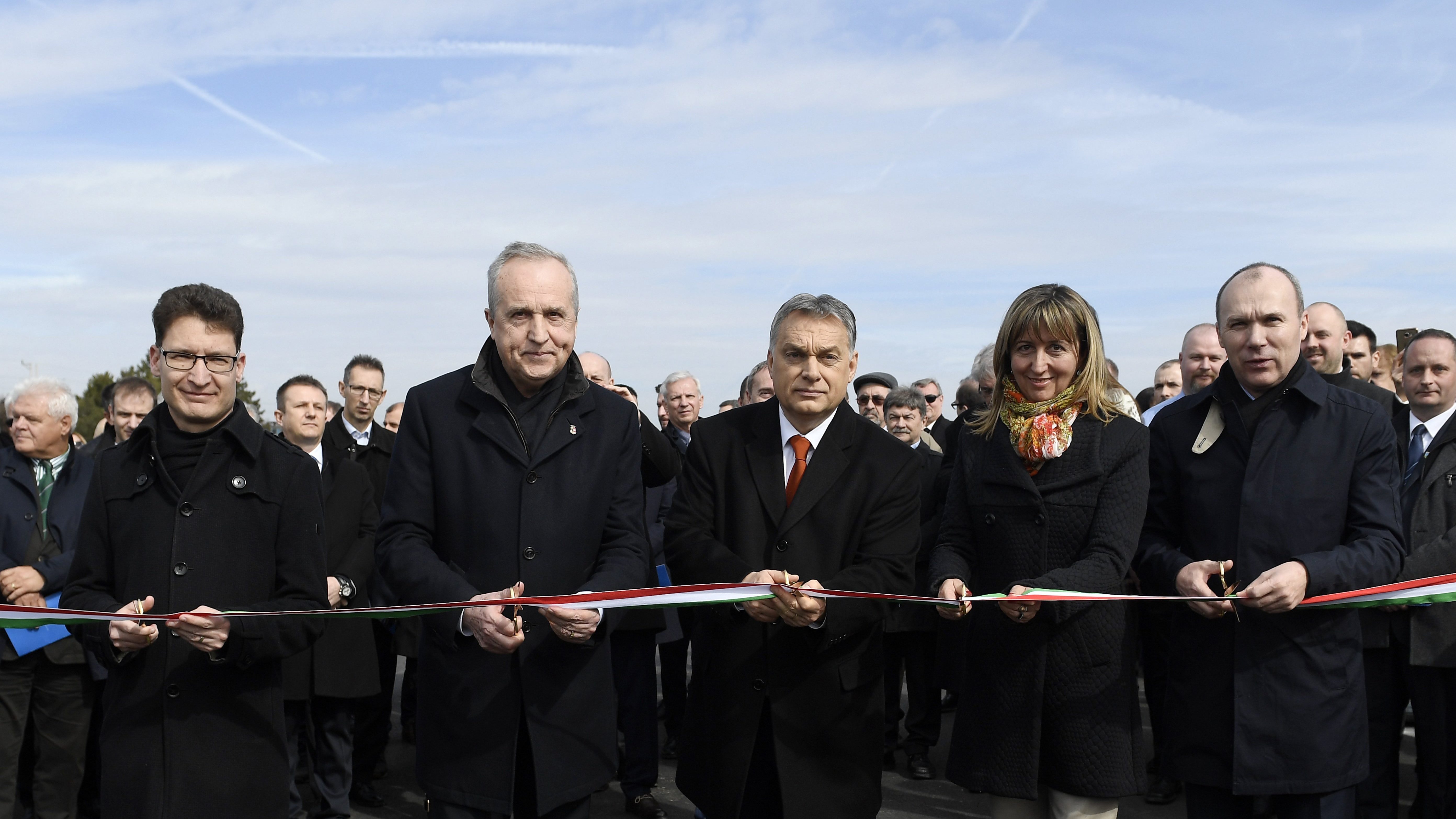
The Prime Minister said on Friday at the inauguration of the section of the M8 main road bypassing the town of Várpalota: “We have plans for road construction projects, developments, flagships, medium-sized cities and modern villages in vain if we have to spend our money on migration, instead of the development of Hungary” as migration costs an enormous amount of money.

The financial foundations of all developments become endangered if Brussels plans to turn Hungary into an immigrant country are forced upon us, Mr Orbán said, stressing that the available resources should be used for purposes which serve the Hungarian people living here.
He observed that, for instance, in Austria and Bavaria a vast percentage of financial resources is exhausted by the “building of an immigrant country”. In his words, Hungary could not afford to spend approximately HUF 100 billion annually on the “operation of an immigrant country”.

Regarding the road completed from an allocation of some HUF 28 billion, the Prime Minister highlighted that with this project they are repaying a long overdue debt to Várpalota as the town section of main road 8 was formerly used by 20,000 vehicles daily. Károly Kontrát, Fidesz Member of Parliament for the constituency and Mayor Márta Campanari-Talabér “kept nagging the government” until they achieved what the people of Várpalota needed, he said, mentioning the construction of the swimming complex, the refurbishment of the hospital, the development of the local school and the renovation of the Thury Castle as examples, in addition to the road.
He said he sincerely hopes that they have managed to achieve the goal of enabling the people of Várpalota to enjoy the advantages of their excellent geographical location from now on, without any of the disadvantages. Additionally, the bypass also makes the town and its region more competitive, the Prime Minister added, stressing that in the modern world excellent infrastructure is the basis of competitiveness.
This development improves the quality of life for a hundred thousand people and the competitiveness of a great many businesses. At the same time, the new road section brings within reach the plan of turning the Székesfehérvár-Várpalota-Veszprém axis into one of the flagships of the Hungarian economy, Mr Orbán said.

The Prime Minister also pointed out that since 2010 some 670 kilometres of new road sections had been built in Hungary from approximately HUF 1,200 billion, while by 2020 a further 900 kilometres of four-lane roads will be completed. He added that some 4,000 kilometres of road sections had also been refurbished.
